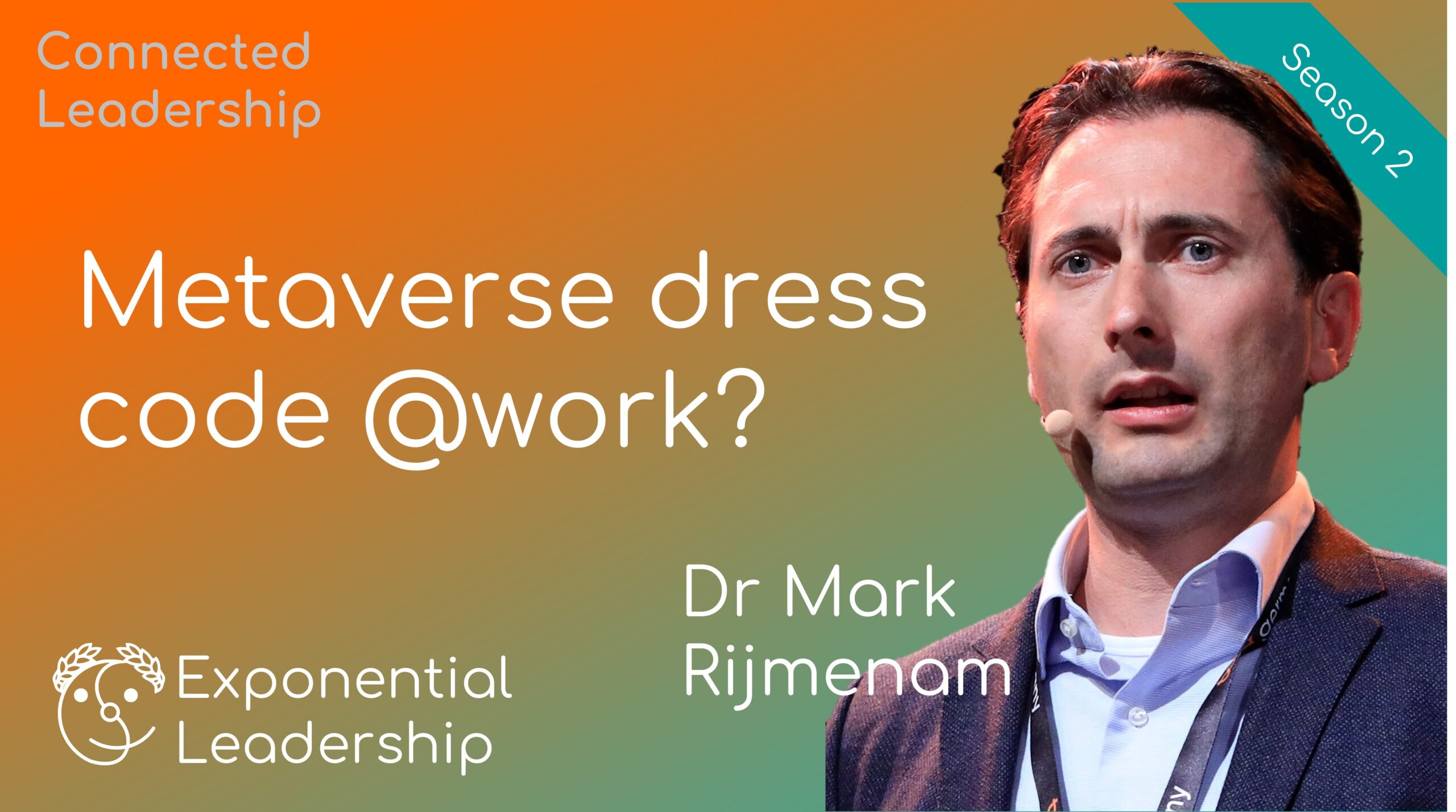Mark van Rijmenan is The Digital Speaker, a future tech strategist who things about how emerging technologies changes organisations, society and the metaverse. He is a blockchain, big data, Artificial Intelligence (AI) specialist, author, and Founder of Datafloq. Mark has authored four books, the first three about big data, blockchain and AI and the fourth, his newest release: Step into the Metaverse. In this book he dives into the metaverse, what it is and what this could mean in life and business.
With a PhD in Management, Mark’s expertise and knowledge have seen him on a journey of success. A global thought leader on the topics of AI, Big data and Blockchain, he is a recognised speaker from the Professional Speakers Association Australia and a member of the Global Speakers Federation.
With his expertise and passion for business management and technology integration, Mark discusses the Metaverse and what changes implementing the Metaverse could bring into our lives. He specifically looks at what implementation could mean from a business perspective and what risks it could pose.
What is the Metaverse?
The Metaverse exists where the physical and digital worlds converge. It can be understood as a network of 3D virtual worlds and augmented experiences focused on social connection. It is often described as the next iteration of the Internet as a single, or universal digital world.
Mark Zuckerberg in his Connect 2021 keynote announced the rebranding of Facebook’s company to Meta. In this talk he gave us a glimpse into a digital world where a person can live their life virtually and have a career, while data is being gathered and collected. However, while data is being collected by large organisations like Meta, this poses a risk of an individual not owning or controlling access to their data.
With data privacy becoming more important across the world, this is not a comforting ideal for many people. Would you feel comfortable with this amount of data being collected about you? Would you want to control it? Would you know how to?
However, as technology advances there are alternatives to Meta that are being created. Mark (van Rijmenam) explains that we need to create an open metaverse, where data belongs to the users instead of BigTech. Fortunately, “startups and the new younger generations are working on this because they are a lot more protective of their data and believe that we need to have control of our data and assets.”
Essentially startups and the younger generation are creating an open metaverse, which is a different approach to Zuckerberg’s vision. An open metaverse is decentralised and allows users to own their data, their digital assets, and their identity. This gives users full access to what they can do with their data and how they want an organisation to use their data. It also allows users to retract their data from being associated with an organisation.
With the metaverse, many people are still trying to understand the concept. It does come with its own set of risks that need to be addressed and overcome to ensure the safety of users.
What are the risks in the Metaverse?
Within the Metaverse there are potential risks that users can face. Imagine walking into a room and you see yourself talking to another person, when in reality it is not you? What will the boundaries be in a metaverse? Some of the anticipated risks include an increase in fake news, deep fakes, bots, trolls, harassment, and abuse from other users.
How deep is a fake video of you if for all intents and purposes it is indistinguishable from how you act, speak and walk? With AI in the mix wearing a skin can also adopt all mannerisms and voice. These are issues that should not be ignored purely because it is a digital or virtual world (reality). If the virtual reality is realistic enough, our minds will struggle to differentiate the real world from the digital one. Meaning if we were to experience harassment in the metaverse it would feel as though we have been harassed in real life.
However, as the metaverse progresses, there will be more ways to combat these risks to ensure the users safety. Mark explains that “Meta has now introduced, by default, four feet of social distancing in the metaverse.” Having these four feet of distance between users is the first step that was put in place to prevent physical harassment taking place in the Metaverse.
As there are going to be new risks and challenges to face in the metaverse, what will this mean for someone leading in the virtual environment and what changes will they have to face? Will we need digital AI cops to police our meta world?
What it will mean to lead in a virtual environment
Identity
In the real world we have gender labels such as male, female, intersex, and we have different gender expression from the gender you are born with. We wear shirts, pants, dresses, suits etc. and for everything including hair, we can have a criterium for dress code. But what will the new pronouns be in the metaverse? And will companies still apply a dress code?
One challenge that might change in the metaverse for the working environment is that of gender and identity. In today’s working environment leadership and companies are already struggling to navigate identity and equality of two sexes, let alone how they are expressed and the array and genders on the spectrum.
In the metaverse, as this is a digital world, people will want to experience the different kinds of identity expression that they can become. As time gradually progresses, they will pick which ones are their favourites and which to use for the different communities they are in. Essentially there will be a digital twin, but people will also be able to play around with their digital identity, from human looks to mythical creatures and beyond. This begs the question; should we have digital identity policies and restrictions?
In this sense, issues around identity and pronouns in the workplace may no longer be an issue in the Metaverse, as everyone will have a different type of digital identity expression.
Dress code
With various companies there are different ways people are expected to dress, some companies are stricter in the sense that employees must wear a suit and tie, whereas others are more casual. How this will impact Meta is determined entirely by the company, as they will have specific rules for their organisation and how they want to appear.
Facial expressions
A large part of how businesses communicate with their employees is with non-verbal communication, such as body language and facial expressions. From a young age we are taught how to understand facial expressions, and how to recognise them. How will this translate to different identity expressions? Will we struggle to interpret the true expression of a superhero mask?
In the case of society in general, the Metaverse is not going to be a world exclusive for the working environment. Everyone from all ages could have access to this new environment. If we consider a younger audience, there will likely be age restrictions and censorship in place, as it remains to be seen whether there will be a positive or negative impact on the development of children’s brains.
However, as the Metaverse is still undergoing development, the likelihood of virtual reality in the workplace having facial, eye, and motion tracking is very likely. Meaning that the lines between what is considered reality and what is virtual reality are going to blur as the technology advances further. Imagine if your personal AI can tell you what someone else is feeling, your heads-up display telling you what recommended course of action to take. How much free will can, and should we surrender?
A world of potential
This new digital world has so much potential to make society do great things. Imagine if you are neurodiverse and for the first time you can understand your partners facial expressions. Imagine what it may feel like if you are differently abled but can fly in the metaverse? Imagine what it could be like to play golf for lunch in Madagascar with your buddies from work and sit down for a sunset in Bondi beach on the same day?
Even with all the possibilities for good, the Metaverse does come with its own risks. We need to consider what we are willing to give away and what we are willing to protect. The Metaverse can be a place where we own our data, where we as users are safe, and where we can express our own identities. Metaverse can become a new world within our own world.
For more on this discussion, listen to the full episode of the Exponential Leadership podcast here.



